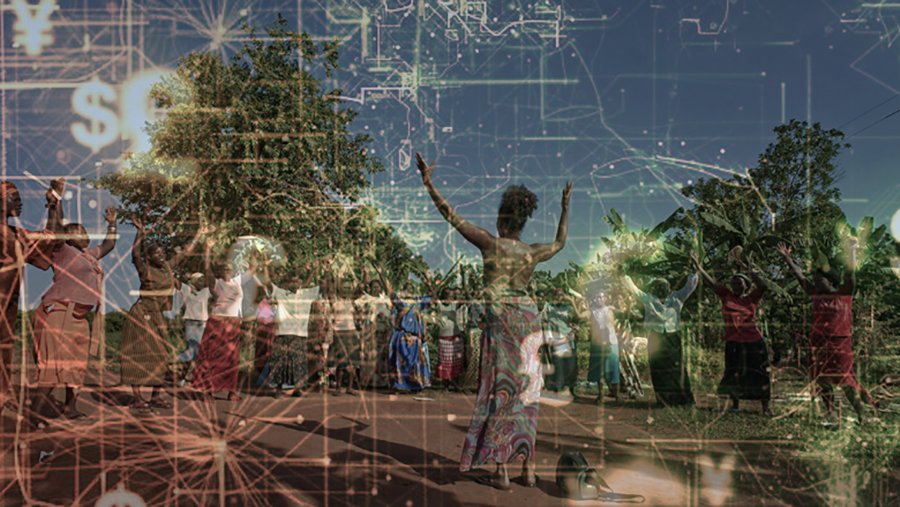
Managing money in the developed world is simpler than in the developing world. Here, we can easily find ways to save money and spend money, and there are various ways of sending money to others, such as PayPal. This has led to a lot of people in the developed world not really seeing the point of bitcoin or other digital currencies. In terms of its actual usage, cryptocurrencies have been slow to gain momentum, in reality. Most people think they don’t know others that use bitcoin, and have an idea of those that do use bitcoin as being either very nerdy or a bit crazy.
What about in emerging economies? Writing for Wired, Cade Metz suggests that the same may not necessarily be true in the developing world. In fact, using digital currencies like litecoin and dogecoin can be a good way of moving money internationally, besides being cheaper than existing market options such as Western Union.
Also, it is relatively common in emerging economies not to have a bank account or access to credit lines. Bitcoin and other digital currencies provide an option for spending and storing money in these kinds of scenarios. In fact, Metz presents figures suggesting that in Nigeria only 36%, that is, just over a third of the population actually has these types of traditional banking services accessible to them.
Blockchain company Stellar, for example, offers a meta digital currency that is expected to make an impact there, and in many other places besides. The company provides a means by which almost any type of currency can be transferred online, and its money transfer network is expected to make great waves, not least because the way in which money can be transferred via this network is expected to be cheap. Stellar was founded in 2014 by Jed McCaleb, an entrepreneur who earlier founded the Bitcoin exchange Mt. Gox and cofounded the fintech startup Ripple. Stellar enables people to send remittances cheaply across international boundaries via a proprietary digital money, called lumens. The organization has Patrick Collison, as a cofounder, who is the CEO of Stripe, a fintech startup privately valued at $9 billion. The following video explain how stellar works:
The company is working with a partner called Oradian. Oradian was founded in Zagreb (Croatia) having presently offices in Lagos (Nigeria) and Manila (Philippines). The company presents itself as the solution to the challenges facing microfinance institutions around the globe. They are particularly focused on financial inclusion. The organisation already offers software to small banking entities in Nigeria. This is the company behind Instafin – the award winning core-banking platform for financial inclusion.
The network that is being built in Nigeria is comprised of approximately 20 micro finance institutions. These are companies that offer services to those that cannot get access to traditional banking, and they provide loans to these people. The network has been set up in such a way that money can be moved by people between these micro finance institutions. Thus, at the current time people are not moving money solely between them, but the micro finance institution is also involved. Three hundred thousand people are already able to use the network if they wish. These potential customers do not have to have digital currency to move money in this way.
In fact, any currency can be sent to anyone and arrive as another. For example, you could send British pounds and the other party could receive these as US dollars. All of this points to the importance of Stellar as providing an underlying infrastructure to provide access to financial services for people in emerging economies. The power is not seen so much to be in the bitcoin per se, but rather in the blockchain infrastructure that has enabled it. While it is still somewhat inconvenient to send money using the network Stellar has created, as the person has to visit the micro finance institution to do it, it is nowhere near as inconvenient as using other options that are available to the same customers. The company hopes to include other financial institutions in the longer term too. The service is provided without the exorbitant fees that other companies for sending money require – and it is estimated that the fee for doing so is 12% (to Africa) and higher between different African countries.
Digital currencies can not only help in the developing world, but will later be transformational in the developed world too. It is expected that change that is brought about in the developing world will later be adopted by the developed world, in fact. This will be made more accessible to regular users, because it is possible to use regular currencies with the system rather than bitcoin, necessarily. Nonetheless, bitcoin will still underlie the system and will be a major component in how it works. It seems that blockchain in emergent economies could transform financial systems from the ground up.
If you would like to know all the details on how stellar works, and its impact on the emerging economies and the global world overall, check out this great Google talk by Professor David Mazières, which explains in a easy way all the techie details and the impact of blockchain in our upcoming world:
Article written by Maria Fonseca and Paula Newton

Paula Newton is a business writer, editor and management consultant with extensive experience writing and consulting for both start-ups and long established companies. She has ten years management and leadership experience gained at BSkyB in London and Viva Travel Guides in Quito, Ecuador, giving her a depth of insight into innovation in international business. With an MBA from the University of Hull and many years of experience running her own business consultancy, Paula’s background allows her to connect with a diverse range of clients, including cutting edge technology and web-based start-ups but also multinationals in need of assistance. Paula has played a defining role in shaping organizational strategy for a wide range of different organizations, including for-profit, NGOs and charities. Paula has also served on the Board of Directors for the South American Explorers Club in Quito, Ecuador.



























